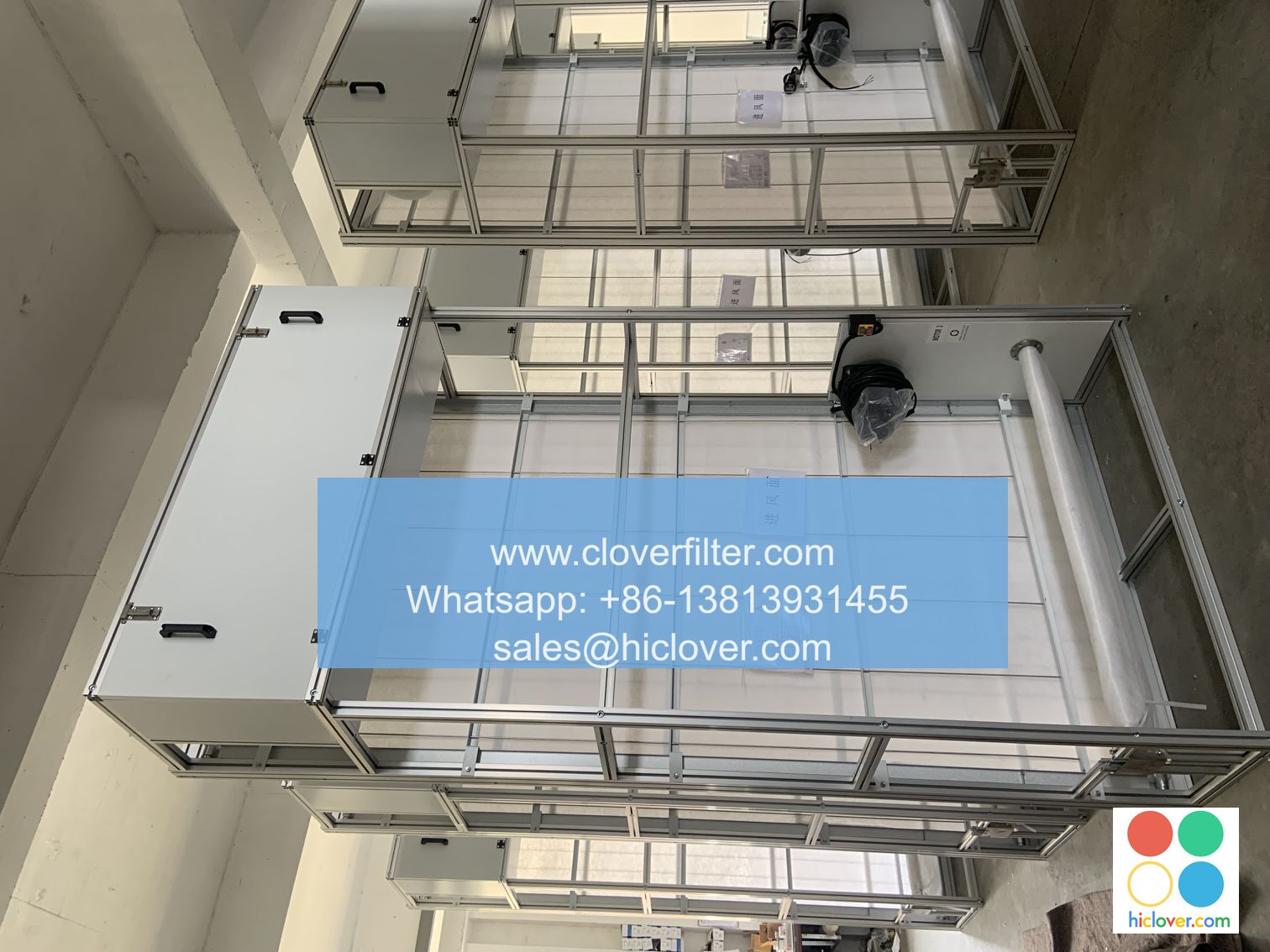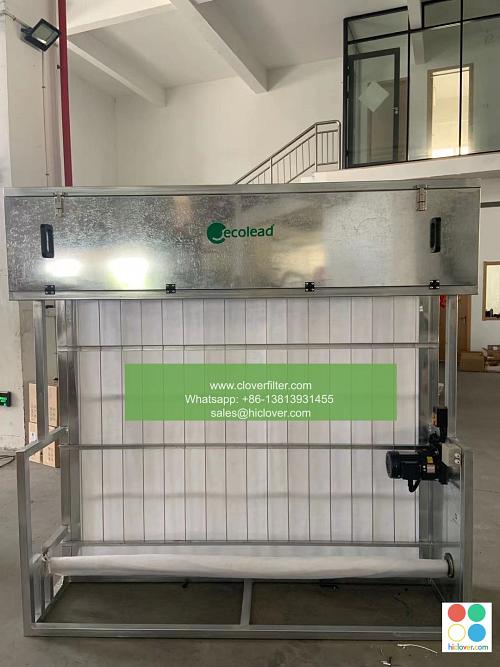Cleanroom Air Quality Control: The Role of Automatic Roll Air Filters in BC

Cleanrooms are designated areas that require rigorous control of air quality to prevent contamination and ensure the integrity of products and research. In British Columbia, industries such as pharmaceuticals, biotechnology, and technology rely heavily on cleanrooms to manufacture and develop their products. Maintaining optimal air quality in these environments is crucial, and one key component in achieving this goal is the use of automatic roll air filters.
Automatic roll air filters are designed to provide continuous filtration of the air in cleanrooms, capturing particles and contaminants that could compromise the environment. These filters are made of a specialized material that is wound onto a roll, allowing for a constant supply of fresh filter media. As the filter becomes loaded with particles and contaminants, it is automatically advanced, exposing a new section of clean filter media to the air stream. This process ensures that the air in the cleanroom remains clean and pure, meeting the strict standards required for production and research.
The importance of cleanroom air quality control cannot be overstated. In industries such as pharmaceuticals and biotechnology, even the smallest amount of contamination can have serious consequences, including product spoilage and compromised research results. In addition, the presence of particles and contaminants in the air can also pose health risks to personnel working in the cleanroom. Automatic roll air filters play a critical role in mitigating these risks by providing a reliable and efficient means of air filtration.
In British Columbia, the use of automatic roll air filters in cleanrooms is particularly relevant due to the region’s thriving technology and biotechnology sectors. Companies such as those involved in the production of medical devices, semiconductors, and nanotechnology require cleanrooms that meet extremely high standards of air quality. Automatic roll air filters are an essential component in these environments, enabling companies to maintain the level of cleanliness required to produce high-quality products and conduct cutting-edge research.
One of the key benefits of automatic roll air filters is their ability to provide continuous filtration without the need for manual intervention. This not only reduces the risk of human error but also minimizes downtime, allowing cleanroom operations to run smoothly and efficiently. Additionally, automatic roll air filters are designed to be highly efficient, capturing particles and contaminants with a high degree of accuracy. This ensures that the air in the cleanroom remains clean and pure, meeting the strict standards required for production and research.
In addition to their technical benefits, automatic roll air filters also offer a number of practical advantages. They are relatively low maintenance, requiring only periodic replacement of the filter media. This makes them a cost-effective solution for cleanroom air quality control, particularly when compared to other filtration systems that may require more frequent maintenance and replacement. Furthermore, automatic roll air filters are highly versatile, making them suitable for use in a wide range of cleanroom environments, from small laboratories to large-scale production facilities.
Despite their many benefits, automatic roll air filters are not without their limitations. One of the main challenges associated with these systems is the potential for filter failure, which can have serious consequences for cleanroom operations. To mitigate this risk, it is essential to regularly inspect and maintain the filter system, ensuring that it is functioning correctly and efficiently. Additionally, companies must also ensure that their automatic roll air filters are properly integrated into their overall cleanroom air quality control strategy, taking into account factors such as air flow rates, temperature, and humidity.
Conclusion:
Automatic roll air filters play a critical role in maintaining optimal air quality in cleanrooms, particularly in industries such as pharmaceuticals, biotechnology, and technology. By providing continuous filtration and capturing particles and contaminants, these systems help to prevent contamination and ensure the integrity of products and research. In British Columbia, where these industries are thriving, the use of automatic roll air filters is particularly relevant. While these systems offer a number of technical and practical benefits, they also require regular maintenance and inspection to ensure optimal performance. By understanding the importance of cleanroom air quality control and the role of automatic roll air filters, companies can ensure that their operations run smoothly and efficiently, producing high-quality products and conducting cutting-edge research.
Frequently Asked Questions (FAQs):
- What is the purpose of automatic roll air filters in cleanrooms?
Automatic roll air filters are designed to provide continuous filtration of the air in cleanrooms, capturing particles and contaminants that could compromise the environment. - How do automatic roll air filters work?
Automatic roll air filters are made of a specialized material that is wound onto a roll, allowing for a constant supply of fresh filter media. As the filter becomes loaded with particles and contaminants, it is automatically advanced, exposing a new section of clean filter media to the air stream. - What are the benefits of using automatic roll air filters?
The benefits of using automatic roll air filters include continuous filtration without manual intervention, high efficiency, and low maintenance. They are also cost-effective and versatile, making them suitable for use in a wide range of cleanroom environments. - What are the limitations of automatic roll air filters?
One of the main limitations of automatic roll air filters is the potential for filter failure, which can have serious consequences for cleanroom operations. Regular inspection and maintenance are essential to mitigate this risk. - How often should automatic roll air filters be replaced?
The frequency of replacement will depend on the specific application and usage. However, as a general rule, automatic roll air filters should be replaced periodically to ensure optimal performance and prevent filter failure.

